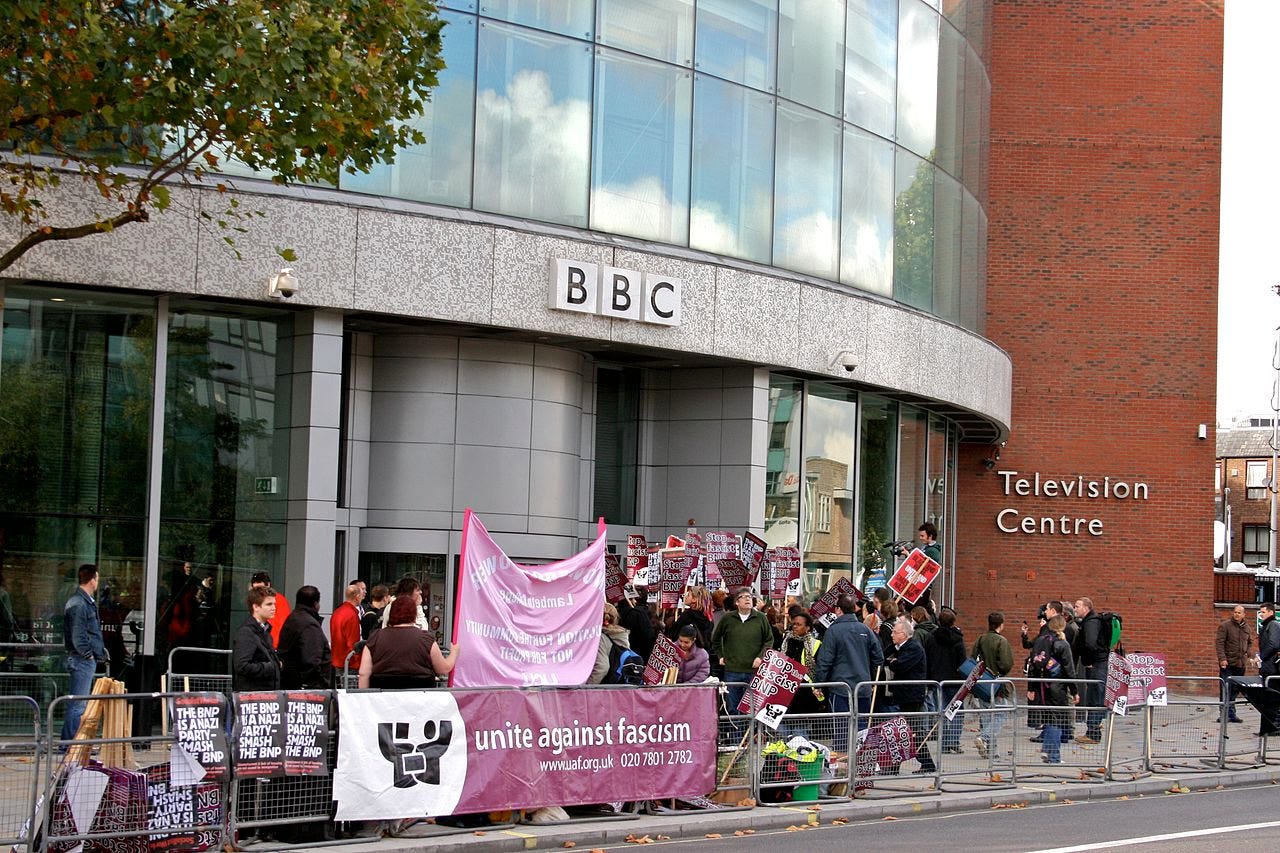We need to talk
What happened when the BBC invited the far-right and what Germany can learn from this
The British have many peculiarities that take some getting used to. They leave their tea bags in to brew for an average of just 20 seconds, and they seem to have at least 50 words for rain. But contrary to the clichés about self-centred islanders, you can have a decent conversation about German politics with them. I for one find the mix of geographical distance and gallows humor quite refreshing.
This week, I had one such thought-provoking conversation with a fellow historian. We were talking about ways to respond to the rise of right-wing parties in the West, and I told him that Germany was arguing about whether it had been a good idea to let Thuringia's AfD leader Björn Höcke on television. Höcke is currently on trial for allegedly using a Nazi slogan while campaigning and is considered an extremist by Germany’s domestic security agency, the Verfassungsschutz. He was recently in a TV debate with a rival from the conservative party, which has created much anxiety in the German press.
My English friend did not look particularly appaled at the idea of granting a member of a far-right party such a public platform. He replied in a dry tone that Germans shouldn’t worry. After all, right-wing extremists get to be on television in the UK. ‘It's a proud tradition. Everyone does it. Even the BBC.’
When I asked what he meant by that, he explained that 15 years ago there had been a similarly heated debate here, just like the one in Germany now. In the autumn of 2009, the BBC invited Nick Griffin, the then head of the British National Party (BNP), which many viewed as fascist, to its flagship political talk show Question Time.

Griffin had been known for his extreme views for years. He had compared the Holocaust to the historical misconception that the earth was flat. In 1998, he received a suspended sentence for distributing material likely to incite racial hatred. Many Brits found it outrageous that the BBC, a public service broadcaster, offered a convicted extremist a platform with millions of viewers.
Keep reading with a 7-day free trial
Subscribe to ZEITGEIST to keep reading this post and get 7 days of free access to the full post archives.

